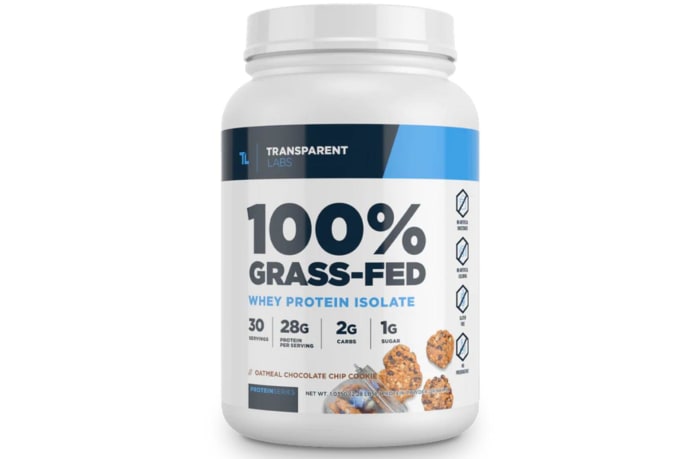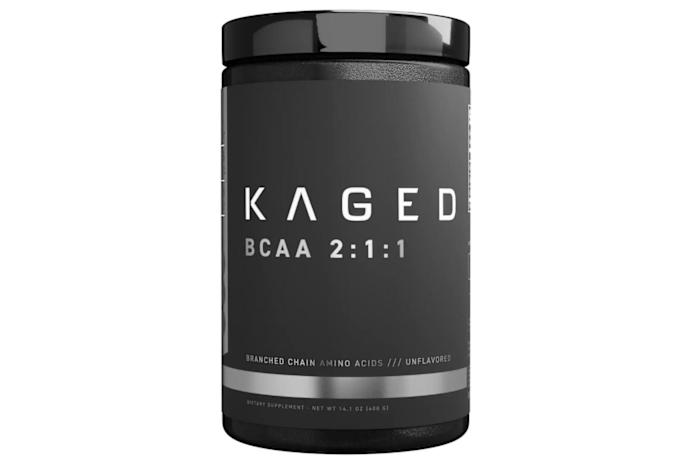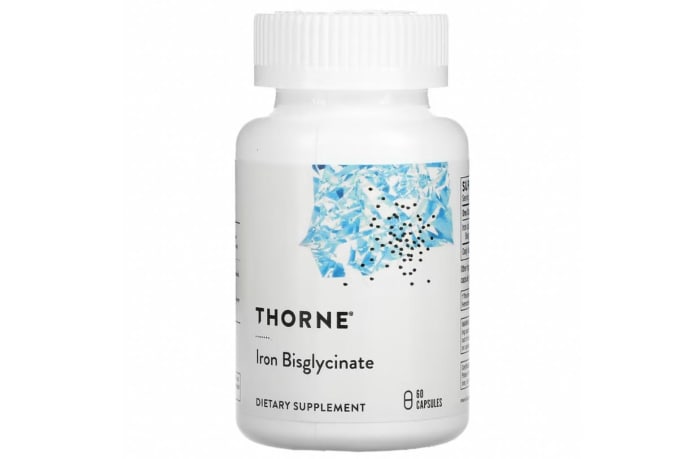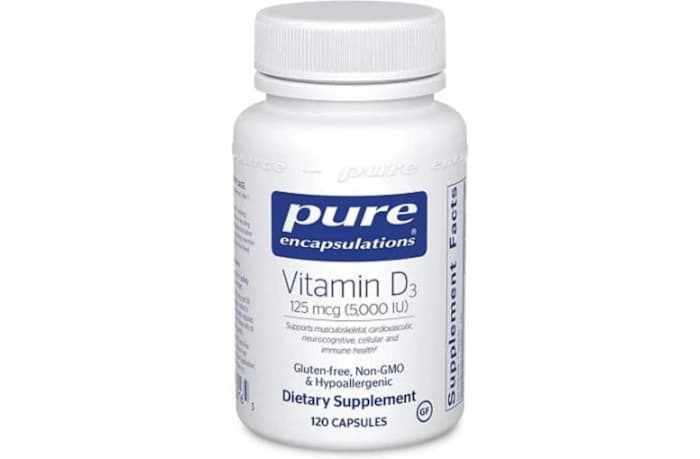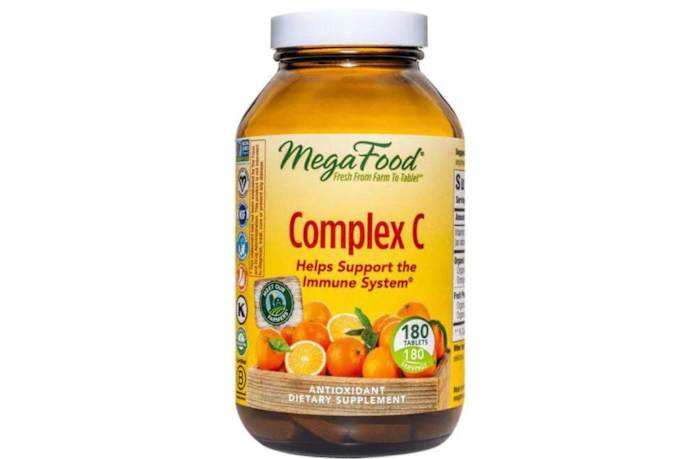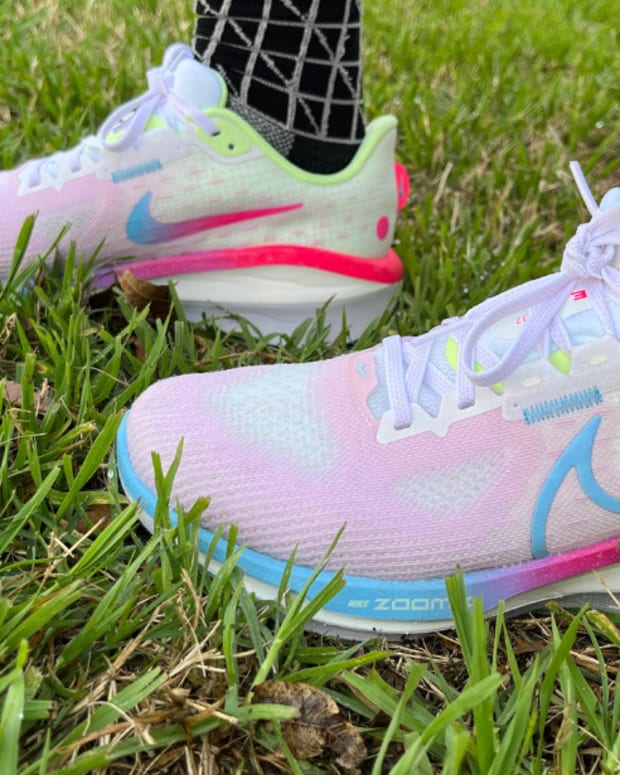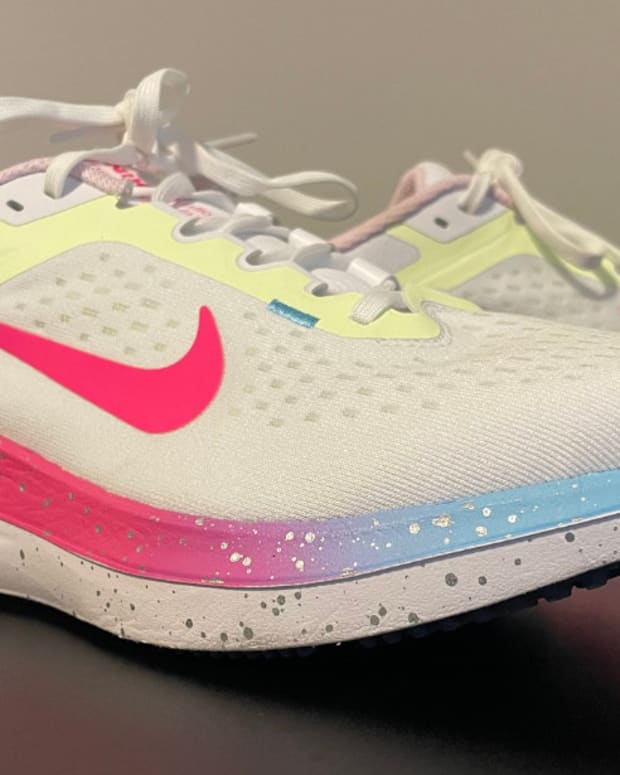The products featured in this article have been independently reviewed. When you buy something through the retail links on this page, we may earn commission at no cost to you, the reader. Sports Illustrated editorial staff are not involved in the creation of this content. Learn more here.
Running is a comprehensive sport requiring physical and mental fortitude. Whether you are lacing up for your first mile, trying for a 5k PR or entering your first Boston Marathon, running requires patience, stamina and taking care of your body. Your best run begins with proper nutrition, the right running shoes and gear for your body and a solid recovery plan.
Getting the right nutrition to fuel your run can be tricky. Most adults do not require supplementation. Our bodies achieve nutrition requirements through diet. However, between work, life and training schedules, diet preferences and life stressors, ticking all the necessary daily nutritional boxes can be challenging.
Running supplements can help fill the gaps in your diet. By integrating these into your 2024 pre and post-run routine, you’ll get the help you need to go that extra mile and recover accordingly.
Make sure to talk to a healthcare professional about your individual needs and appropriate dosages before adding any supplement to your routine.
Our Picks for the Best Supplements for Runners in 2024:
- Best Collagen Supplement for Runners: Utzy Coll-U-Gen
- Best Probiotic for Runners: Ritual Synbiotic+
- Best Protein Powder for Runners: Transparent Labs Whey Protein Isolate
- Best Pre-Workout for Runners: Legion Athletics Pulse
- Best Electrolyte Powder for Runners: BUBS Naturals Hydrate or Die
- Best BCAAs for Runners: Kaged BCAA 2:1:1
- Best Magnesium for Runners: Transparent Labs Strength Series ZMO
- Best Iron for Runners: Thorne Iron Bisglycinate
- Best Vitamin D for Runners: Pure Encapsulations Vitamin D3
- Best Vitamin C for Runners: Megafood Complex C
Best Collagen Supplement for Runners: Coll-U-Gen
Key info:
- Cost per serving: $1.68 per serving
- Key nutrients: UC-II, Fortigel
- Type: Powder
- Dose: One scoop
- Certifications: Products made in a facility that’s third party NSF-certified and licensed to produce USDA organic products.
If you are a runner, chances are you've experienced some joint pain. While studies show that running may not cause osteoarthritis, a supplement to help keep your joints healthy will allow to you keep logging miles. Coll-U-Gen is our pick for the best collagen supplement for runners because it's formulated to repair joint tissue. One scoop includes 40 milligrams of UC-II, a form of collagen from chicken cartilage, that is proven to improve joint health. Coll-U-Gen also includes the collagen peptide Fortigel. While Fortigel has shown promise for reducing injuries to ligaments and tendons, more research is needed.
Pros:
- 90-day money back guarantee
- Flavorless powder is easy to mix into drinks or smoothies
- Formulated to improve joint health
Cons:
- Not USP verified
- Contains sodium
Best Probiotic for Runners: Ritual Synbiotic+
Get 25% off your first month of Ritual! Code: SI25
Key info:
- Cost per serving: $1.66
- Key nutrients: Probiotics (lactobacillus rhamnosus, bifidobacterium animalis ssp. lactis), tributyrin, PreforPro
- Type: Capsule
- Dose: One capsule daily
- Certifications: Non-GMO, vegan, third-party tested and allergen-free
Gut health is essential for maintaining overall health and wellness but is especially important to runners who want to support their immune systems during rigorous training. Ritual’s Synbiotic+ takes traditional probiotics and kicks it up a notch, adding pre- and post-biotics to the mix. LGG (lactobacillus rhamnosus) and BB-12 (bifidobacterium animalis ssp. lactis) are used to help keep gastrointestinal issues at bay, while PreforPro probiotics and post-biotics are included to promote healthy gut bacteria, lining and function.
Pros:
- Tested by both Ritual and third-party organizations
- Traceable ingredients for visibility
- Protective packaging to preserve probiotics
- Vegan and free of major allergens
Cons:
- Pricey
Best Protein Powder for Runners: Transparent Labs Whey Protein Isolate
Key info:
- Cost per serving: $1.99 per serving with the one-time purchase, subscription cost per serving drops to $1.69
- Key nutrients: Grass-fed whey protein isolate and sodium chloride
- Type: Powder
- Dose: One scoop (32.96 grams)
- Certifications: Made from naturally fed hormone-free cow whey, clean of artificial sweeteners, food dyes, gluten and preservatives
High-quality protein consumption following a run supports cellular regeneration and reduces post-run fatigue.
Transparent Lab Whey Protein Isolate contains 2.5 grams of fat and two grams of carbs per serving and still delivers 24 grams of protein per serving. With eight flavors to choose from, you can find a flavor to please your palate.
Transparent Labs Whey Protein Isolate is very committed to transparency. Its whey protein isolate is made from 100 percent naturally fed, hormone-free cow whey and is free of artificial sweeteners, food dyes and preservatives.
A possible downside is the price may be slightly higher than competitors. Also, Transparent Labs Whey Protein Isolate is processed in a facility that has coconut and peanuts.
Pros:
- Eight flavors
- 100 percent grass-fed whey concentrate
- Free of artificial flavors and sweeteners
Cons:
- Not nut-free, product is processed in a facility that has coconut and peanuts
- Pricier than other protein powders
Best Pre-Workout for Runners: Legion Athletics Pulse
Key info:
- Cost per serving: $2.25 per serving or $2.02 for subscribers
- Key nutrients: Caffeine, L-theanine, citrulline malate, beta-alanine, alpha-GPC, betaine, calcium, sodium, potassium
- Type: Powder
- Dose: Two scoops
- Certifications: NSP Sport Certified, USDA Organic certified, Whole30 approved, Non-GMO Project verified, gluten and soy free, vegan
For runners needing some extra pep in their step while training for their next race, pre-workout may be the key to getting energized. The active ingredients in Legion Athletics Pulse are carefully selected and blended to provide users the energy to go the extra mile, and ingredients and doses have been clinically reviewed by 54 scientific studies. There are 350 milligrams of caffeine per serving to help improve strength and endurance and enhance overall performance. It also contains L-theanine which works with caffeine to increase alertness and focus. If you want to avoid stimulants, Legion offers a non-stim pre-workout option for Pulse as well.
All the ingredients in Pulse are derived from natural sources and it is naturally flavored and sweetened with stevia and erythritol. Legion also conducted third-party testing for purity and potency in a state-of-the-art ISO 17025 lab that is known for its high quality and reliable testing. There are 18 flavors to choose from and subscribers save 10 percent on every purchase. Legion also has a 100 percent money-back guarantee and does not require any returns.
Related Post: The Best Pre-Workout Supplements
Pros:
- Backed by scientific research
- Certified to contain no banned substances
- Minimal additional ingredients
- Third-party tested
- Money-back guarantee
- Gluten-free, vegan and vegetarian
Cons:
- No BCAAs
- Price per serving is expensive
Best Electrolyte Powder for Runners: BUBS Naturals Hydrate or Die
Key info:
- Cost per serving: $1.89 per serving or $1.61 for subscribers
- Key nutrients: Potassium, magnesium, iron, calcium, chloride
- Type: Powder
- Dose: One stickpack
- Certifications: NSP Certified for Sport, USDA Organic certified, Whole30 approved, Non-GMO Project verified, gluten and soy free, vegan
Electrolytes keep the body’s nervous system firing, helping the brain send quick commands to your muscles so you can stay quick on your feet while also making sure you have enough fluid in your cells so they can function properly. Your body loses electrolytes through sweating, leaving you susceptible to dehydration as your body tries to keep up with your fluid regulation levels. BUBS Naturals Hydrate or Die contains three key electrolyte elements to help keep you rocketing forward: sodium, magnesium and calcium. This electrolyte powder also includes 243 milligrams of potassium and 1,030 milligrams of chloride both of which work with sodium to maintain fluid balance. Hydrate or Die comes in convenient single-serving packets so runners can carry them during a long run or keep in their gym bag or car to replenish after a cardio session. There are three refreshing flavors to choose from: lemon, orange and organic coconut, so get ready to get your sweat on.
Pros:
- 2,000 milligrams of electrolytes are from natural sources
- No added sugar
- Core ingredient is organic evaporated coconut water
- Gluten and soy free
- Subscribers can save 15%
- Vegan
- Whole30 approved
Cons:
- Single-serving packets are more wasteful
- No third-party testing
- Contains tree nuts
Best BCAAs for Runners: Kaged BCAA 2:1:1
Get 30% off with code SAVE30
Key info:
- Cost per serving: About $0.46 per serving for one-time purchase, and about $0.37 per serving for the subscribe and save option
- Key nutrients: L-leucine, L-isoleucine, L-valine
- Type: Powder
- Dose: One scoop (5.5 grams)
- Certifications: Vegan, Informed-Sport Certified, non-GMO
Branched-chain amino acids (BCAAs) are supplements that increase muscle growth, improve outcomes of exercise-induced muscle damage and reduce post workout muscle soreness.
Kaged BCAA 2:1:1 powder offers informed-sport certified, vegan, fermented ingredients suitable for even very strict diets. The product is unflavored so it can easily be mixed with your favorite workout drink in a shaker bottle. Kaged goes further to describe its powder as a part of a “mix-your-own system,” allowing you to stack your BCAAs with any pre-, mid- or post-workout drink to meet your defined nutritional needs.
As with many unflavored BCAA supplements, some customer reviews on Kaged’s product page report a bitter taste when using Kaged’s BCAA 2:1:1 powder. Overall, consumers are very happy with their Kaged BCAA 2:1:1 supplement.
Pros:
- Dissolves quickly
- Informed-Sport certified
- Pure ingredients
Cons:
- May have a bitter taste
Best Magnesium for Runners: Transparent Labs Strength Series ZMO
Key info:
- Cost per serving: $0.96
- Key nutrients: Magnesium, zinc, oyster meat powder
- Type: Capsules
- Dose: Two capsules daily
- Certifications: Third-party tested, no artificial sweeteners, preservatives or coloring
Every runner has experienced the aftermath of training a bit too much, and all the soreness and fatigue that can ensue. Transparent Labs Strength Series ZMO may be one supplement that can help you bounce back and recover quickly. Magnesium is at the core of a wide range of chemical reactions in the body, from cell function to muscle performance. Zinc is behind muscle recovery and boosting the immune system. These two elements together are a dynamic duo, but Transparent Labs relies on another unique ingredient that helps promote their full potential: oyster meat powder. Aside from containing zinc and magnesium, there are 59 other trace minerals in oysters that are being researched for their physical recovery potential.
Sleep is one powerful tool when it comes to recovery, and Transparent Labs takes that into account with this supplement, recommending two capsules before going to bed.
Pros:
- Contains two key minerals that may expedite recovery
- Product is third-party tested for quality and safety purposes
Cons:
- Contains animal products
Best Iron for Runners: Thorne Iron Bisglycinate
Key info:
- Cost per serving: $0.22
- Key nutrients: Iron as ferrous bisglycinate chelate (25 milligrams)
- Type: Capsule
- Dose: One capsule
- Certifications: Gluten-free, NSF Certified for Sport
Iron bisglycinate, or ferrous bisglycinate, is a specialized form of iron that’s easily absorbed without the typical negative gastrointestinal side effects. Thorne Iron Bisglycinate is great for endurance athletes, female athletes with heavy menstruation or anyone who needs a little boost in their iron supply. If you are just starting to take an iron supplement as part of your regimen, note that it can take one to four weeks for the supplement to take effect and demonstrate a change in hemoglobin levels.
As a running supplement, Throne Iron Bisglycinate is NSF Certified For Sport, which was a major reason for selecting this product. NSF verifies products do not contain unsafe levels of contaminants, prohibited substances or masking agents. The rigorous third-party testing at Thorne ensures what is on the label matches what is in the product.
Pros:
- NSF Certified for Sport
- Soy, dairy and gluten free
- Reports of minimal GI side effects
Cons:
- May take one to four weeks for the supplement to take effect
Best Vitamin D for Runners: Pure Encapsulations Vitamin D3
Key info:
- Cost per serving: $0.25 per serving
- Key nutrients: Vitamin D3 (125 micrograms or 5,000 IU)
- Type: Vegetable capsule
- Dose: One capsule
- Certifications: Non-GMO, gluten-free
Vitamins are essential for health and development. Vitamin deficiency may lead to serious health consequences. For example, since Vitamin D is required for calcium absorption, Vitamin D deficiency can cause bones to weaken, which can put runners at risk of stress fractures.
Pure Encapsulations Vitamin D3 is our choice for the best running supplement for Vitamin D. Pure Encapsulations Vitamin D3 provides 5,000 international units (IU) of vitamin D, which plays a key nutritional role in supporting healthy bones and overall health. With a serving of 5,000 IU, it creeps above the upper limit recommendation for Vitamin D supplementation of 4,000 IUs. Some users may experience side effects, such as nausea, vomiting, constipation or weight loss. Check with your healthcare provider before starting.
Pros:
- Supports bone health
- Non-GMO
- Gluten-free
Cons:
- Potential side effects due to the amount of Vitamin D
Best Vitamin C for Runners: Megafood Complex C
Key info:
- Cost per serving: $0.30 per serving
- Key nutrients: Vitamin C as ascorbic acid, Organic Bioflavonoid Complex Blend (organic amla fruit, organic rosehips, organic orange peel, organic green bell pepper)
- Type: Tablet
- Dose: One tablet daily
- Certifications: B-Corp, Non-GMO Project verified, kosher, gluten-free, vegan
Vitamin C is an important nutrient for runners as it aids in the regeneration and growth of tissue in the body, and supports a healthy immune system. Vitamin C is also an antioxidant offering cellular support for protein metabolism which is especially helpful for long-distance runners and sprinters alike.
This brand is made from non-GMO, vegan and allergy-friendly ingredients. The ingredients are derived from organic fruits and vegetables, and MegaFood is a Certified B Corp.
One ingredient to look out for with MegaFood Complex C is rosehips. While safe for most, rosehips can interact with some medications and may increase the risk of kidney stone development. Also, rosehip consumption is contraindicated for individuals with a history of sickle cell anemia.
Pros:
- Certified B corp business
- Non-GMO, vegan and allergy-friendly ingredients
Cons:
- Contains rosehips, which could be troublesome for certain individuals
Why Should Runners Use Supplements?
Running can be hard on the body, which means that your muscles and joints need optimum nutrition to fuel and recover correctly. In combination with sleep, hydration and adjunct training strategies, supplements can help meet the body's micro and macronutrient requirements. Dietary supplements can help improve or maintain your overall health. Furthermore, supplements can also help you meet your daily requirements of essential nutrients.
How to Use Running Supplements
Running supplements might enhance a runner's performance but do not substitute for a nutrient-dense diet. Runners should focus on eating a healthy diet with the guidance of a medical professional first. Supplements should be taken according to the package directions and in conjunction with the recommendation by a healthcare professional.
What Runners Should Look for in Supplements
It’s critical to understand the ingredients and the dose of the supplement you're taking and how it fits into your current diet, lifestyle and training plan. It is not always clear which supplements are high quality and which are a waste of your money or even potentially dangerous. This is why it is important to read labels and check for quality testing and ingredient sourcing. For athletes, the gold standard certification is the internationally renowned NSF Certified for Sport. The Certified for Sport certification program ensures that the product contains exactly what is listed on its label, and does not contain unsafe levels of contaminants, prohibited substances, or masking agents. Consumerlabs.com and U.S. Pharmacopeia (USP) are two additional reliable third-party supplement testing companies.
Overall, it is important when researching running supplements to understand the chemical makeup, how the supplement is prepared and how it works in the body
Intended Use
Running supplements are designed to supplement—not replace—nutrients or other compounds in your diet. Always read the label for instructions, and consult with your healthcare provider prior to use.
Dosage
Read the label of the supplement you are taking, and follow the instructions provided there. Do not go above the recommended dosage, as some supplements have adverse effects when taken in too high a quantity. Be aware of any interactions the supplement may have with other medications or foods you consume.
Form
Supplements are ingested and come in many forms, including tablets, tinctures, powders, liquids, capsules, soft gels, gel caps, bars and gummies.
Certifications
Vitamins and supplements are not regulated by the FDA for effectiveness or safety.
Third-party certification/verification programs in the dietary supplement industry are fee-based programs and participation is voluntary. ConsumerLab.com, NSF International and U.S. Pharmacopeia (USP) are three third-party companies that test supplements.
The organizations mentioned test dietary supplements as finished products for identity, ingredient quality, strength, purity and, as applicable, freshness and disintegration. Products must meet acceptable limits for suspected contaminants such as heavy metals, pesticides, dioxins, furans, polychlorinated biphenyls and microbes.
Cost
You certainly do not need to pay the highest prices to get good quality supplements. Moreover, the cost of a supplement is not an accurate predictor of quality. ConsumerLab tests have found some of the most economical products, costing pennies a day, are of better quality than premium-priced supplements costing more than a dollar a day.
Who Should Avoid Running Supplements
For competing athletes, potential disadvantages of supplement use include expense, and the risk of ingesting substances banned under the World Anti-Doping Agency’s List.
Regardless if you are a professional or amateur, avoid supplements if you have an allergy to any of the listed ingredients or are on medications that could interfere with supplemental ingredients.
Work closely with your healthcare provider for guidance on the best running supplement for your needs.
FAQs
Do runners need multivitamins?
By eating a well-balanced diet, most people, including runners, will not require a multivitamin. Those with diet restrictions, who are pregnant, have health conditions or are unable to obtain the recommended nutrients from diet alone may benefit from taking a multivitamin.
What will give me the energy to run?
Generating and sustaining energy to run requires a healthy lifestyle. This includes integrating healthy habits such as proper nutrition, adequate sleep and hydration.
Should runners take protein?
Adequate protein intake, whether through diet alone or with supplementation is critical for runners. Protein is necessary to maintain muscle protein synthesis, support energy production and improve recovery efforts. Whether you need to take a protein supplement depends on how much protein you consume in your daily diet. According to the Journal of the Academy of Nutrition and Dietetics, runners require 1.4 to 1.7 grams of protein per kilogram of body weight each day. That means that a 150 pound athlete would need approximately 90 to 120 grams per day.
What can I take to run faster and longer?
Caffeine and nitrate supplements demonstrate effectiveness for improving speed in both male and female endurance athletes.
Should runners take creatine?
Creatine, a naturally occurring substance stored in our muscles and brain, helps release energy during high-intensity situations. On average, the human body produces one gram of creatine per day. A balanced diet without creatine supplements then provides another gram per day. Studies show creatine can improve muscle mass, expedite muscle recovery and boost high-intensity performance.
Creatine, which is often included in pre-workout supplements, would most likely benefit sprinters looking to put on mass or striving for strength gains. Long-distance runners and endurance athletes would not necessarily need to use creatine supplementation regularly since it is tailored for rapid, maximum-effort workouts. However, creatine may be beneficial before conducting hill sprints or interval workouts.
Do runners need supplements?
No, runners do not need supplements. Daily nutritional requirements can be met from diet alone. However, supplementation will benefit runners who may not be able to meet their daily intake requirements through their food intake.
Prices are accurate and items in stock as of publish time.



